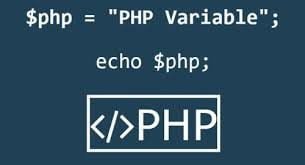Overview
In an increasingly interconnected world, financial scams have become more sophisticated, posing a threat to individuals’ hard-earned money. This guide provides comprehensive strategies to prevent falling victim to financial scams, using the concept of 3000 loans as an example to illustrate the importance of vigilance and caution.
Stay Informed about Common Scams
Knowledge is your first line of defense. Stay informed about prevalent scams, such as phishing emails, fake websites, or fraudulent investment schemes. Regularly update yourself on the latest scams reported by financial institutions and law enforcement agencies. This vigilance is akin to being cautious before entering into any financial arrangement, including considering the legitimacy of offers like 3000 loans.
Verify Identities and Credentials
Before engaging in any financial transaction, verify the identities and credentials of the parties involved. Scammers often pose as reputable institutions or individuals to gain trust. This verification process is parallel to due diligence before accepting or applying for financial products like loans, ensuring the legitimacy of the service provider.
Secure Your Online Presence
Protecting your online accounts is paramount. Use strong, unique passwords for each account, enable two-factor authentication, and be cautious about the information you share on social media. Just as you would exercise caution when providing personal details for a financial transaction, securing your online presence helps prevent unauthorized access and potential scams, including those involving loans.
Be Skeptical of Unsolicited Communications
Scammers often reach out through unsolicited emails, phone calls, or messages. Exercise caution and be skeptical of unexpected communications. Verify the legitimacy of the sender or caller independently before providing any personal or financial information. This skepticism aligns with approaching financial offers, even seemingly legitimate ones like loans, with due diligence.
Monitor Your Financial Accounts Regularly
Regularly monitor your financial accounts for any unauthorized or suspicious activities. Set up alerts for transactions exceeding a certain threshold and promptly report any discrepancies to your financial institution. This proactive monitoring mirrors the careful scrutiny you would apply when dealing with financial products, such as reviewing terms and conditions for services.
Educate Yourself and Others
Financial literacy is a powerful tool in preventing scams. Educate yourself about various financial products and the associated risks. Share this knowledge with friends and family, especially vulnerable groups. Just as you would inform others about the terms and conditions of financial services like loans, spreading awareness about potential scams enhances overall financial security.
Conclusion
In conclusion, safeguarding yourself from financial scams requires a combination of awareness, verification, skepticism, and proactive monitoring. The loans serve as a reminder that even seemingly straightforward financial transactions should be approached with caution. By incorporating these strategies into your financial practices, you fortify your defenses against scams and protect your hard-earned money in an ever-evolving digital landscape. Stay vigilant, stay informed, and empower yourself to make secure financial decisions.





